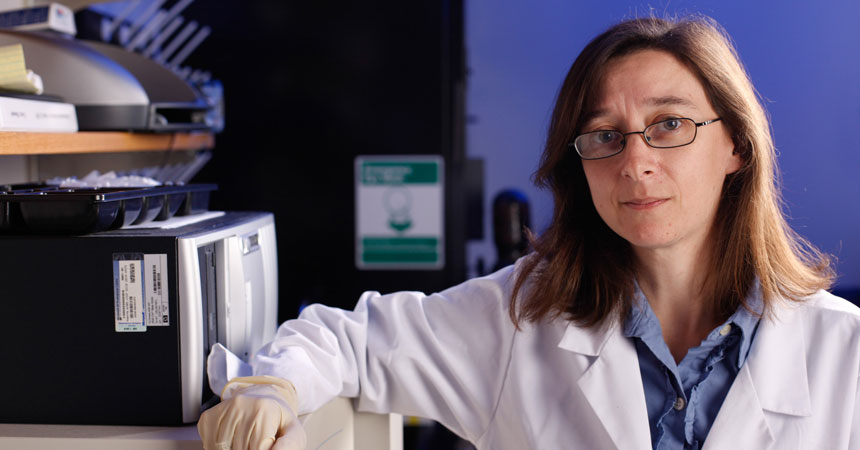Scientist says to slow aging, choose exercise
By Jan Jarvis

Regular exercise slows the effects of aging. But the news is less positive for antioxidant supplements, another popular intervention often adopted by health conscious adults.
The positive effects of vitamins E and C are not clear, said Nathalie Sumien, Ph.D., Associate Professor, Department of Pharmacology and Neuroscience, Institute for Healthy Aging.
“If you’re going to pick one intervention, choose exercise,” she said. “And you don’t have to exercise like crazy or go to the gym every day to see some beneficial results.”
Dr. Sumien spoke on the pros and cons of combining interventions to improve individual’s health span at the 47thAnnual American Aging Association meeting where she delivered theJames A. Joseph Memorial Lecture.
The distinction is awarded to scientists who have made substantial contributions to the field of aging. The memorial lecture is to honor the memory of the late Dr. James A. Joseph, Director of the Neuroscience Laboratory at the USDA-ARS Human Nutrition Research Center on Aging at Tuft’s University, who was a champion of nutrition to promote health aging and prevent disease.
After studying aging for 22 years, Dr. Sumien said regular exercise has been shown to be quite beneficial to slow down or reverse the aging process. Even simply, walking at a moderate pace for three miles on the treadmill or outside regularly is enough to make an impact.
Although people who are health conscious often combine multiple interventions hoping for a better result, the interaction between exercise and antioxidants remains unknown and may lead to negative effects, she said. In her lab, Dr. Sumien is studying the effects of antioxidants on the benefits of exercise and cognitive function in a mouse model of brain aging.
“If you take antioxidants you might decrease the positive impact you get from exercising,” she said. “More interventions might not mean you’ll see a better outcome.”





Social media